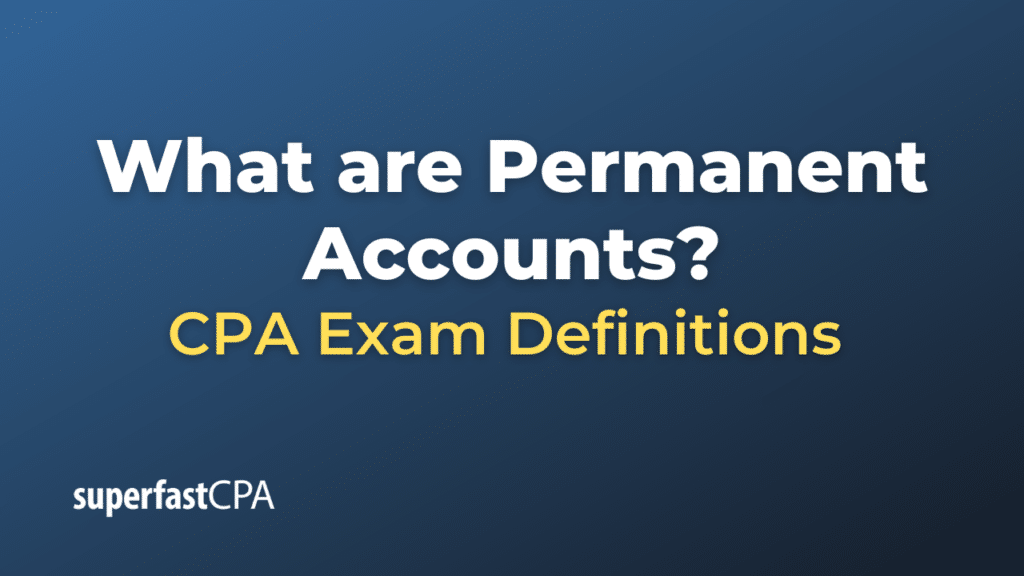Permanent Accounts
Permanent accounts, also known as real accounts, are balance sheet accounts that track the ongoing financial health of a business. These accounts don’t close at the end of an accounting period, as opposed to temporary accounts which are cleared at the end of each period.
Permanent accounts include asset accounts, liability accounts, and shareholders’ equity accounts. Here’s a brief rundown:
- Asset Accounts: These accounts track what the company owns. Examples include Cash, Accounts Receivable, Inventory, Property, Plant, and Equipment.
- Liability Accounts: These accounts track what the company owes. Examples include Accounts Payable, Notes Payable, and Accrued Expenses.
- Equity Accounts: These accounts track the owners’ claim on the company’s resources. Examples include Common Stock, Retained Earnings, and Treasury Stock.
The balances in these accounts carry over from one period to the next, which allows the business to keep track of its financial health over the long term. For instance, the Cash account isn’t cleared at the end of each accounting period. Instead, the balance at the end of one period becomes the beginning balance for the next period. This allows the business to track its cash resources over time.
This is in contrast to temporary accounts (like revenue, expense, and dividend accounts), which are cleared to Retained Earnings at the end of each accounting period. The clearing of temporary accounts is known as “closing the books.
Example of Permanent Accounts
Let’s imagine a business, let’s call it ABC Corporation, to illustrate how permanent accounts work:
Asset Accounts:
- Cash: If ABC Corporation has $20,000 in its bank account at the end of the year, this balance is carried forward to the next year. If ABC Corporation earns another $5,000 in January, the cash account would show $25,000 at the end of January.
- Accounts Receivable: Let’s say ABC Corporation sold goods worth $10,000 on credit in December. The balance of the Accounts Receivable at the end of December would be $10,000, which would be carried forward to the next year. If the customers pay back $5,000 in January, the balance at the end of January would be $5,000.
- Accounts Payable: If ABC Corporation owes its suppliers $15,000 at the end of the year, this amount will be carried forward to the next year in the Accounts Payable account. If ABC Corporation pays $10,000 to its suppliers in January, the balance at the end of January would be $5,000.
Equity Accounts:
- Common Stock: If ABC Corporation issued shares worth $30,000 in the previous year, this amount will be recorded in the Common Stock account and will be carried forward to the next year. If ABC Corporation issues additional shares worth $5,000 in January, the balance at the end of January would be $35,000.
- Retained Earnings: If ABC Corporation earned net income of $10,000 last year and didn’t distribute any dividends, this amount will be added to the Retained Earnings account and will be carried forward to the next year. If ABC Corporation earns an additional net income of $2,000 in January, the balance at the end of January would be $12,000.
Remember, these accounts are all ‘permanent’ in nature, which means the balances do not reset at the end of the accounting period. Instead, the balances are carried forward to the next period.













